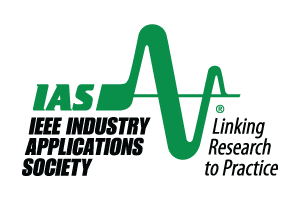Important Dates
The 15th Annual IEEE Energy Conversion Congress and Exposition (ECCE 2023) will be held in Nashville, Tennessee, USA, from October 29,2023 to November 2, 2023. Special Sessions are solicited focusing on emerging technologies and industry-oriented topics. Industry and government organizers or speakers are of particular interest. Guest speakers will be invited on the day their session is scheduled. For the first time, individual speakers are also welcome to submit proposals for special sessions. In addition, special sessions will place emphasis on inventions and other technologies that are paving the way for future products and research. No written papers are required. Materials presented in the Special Sessions will not be included in the conference proceedings. Each session will be assigned either one or two 100-minute slot(s), subject to the conference program schedule.
Different session formats are solicited:
1) Formal presentations;
2) Informal talks with or without slides;
3) Full Q&A panel;
4) Debate;
5) Other creative or hybrid styles.
One or more of the following elements are strongly encouraged in the special session proposals:
A) Significant industry or government involvement;
B) Industrial application-oriented;
C) ECCE 2023 regionally oriented topics;
D) Collaborative cross-disciplinary topics or teams;
E) Creative formats that engage the audience, especially industry.
Factors considered as less attractive to the audience are
a) Non-emerging topics;
b) Academic lectures;
c) Similar teams with similar topics from the immediate past ECCE;
d) Solicitation of a particular product or service;
e) Unclear plans, including unconfirmed speakers.
Potential topic areas include but are not limited to:
Proposal Submission and Review Process
All special session proposals must be submitted via the ECCE 2023 web portal under “Call for Special Sessions”. Please follow the Proposal Form on the website as a submission template. The proposals will be reviewed by a panel of subject matter experts.
Special Session Proposal Template
Format: Maximum 5 pages. All pages are formatted to 8.5×11” or A4 paper with margins of one inch on every side. All texts use single space, Times New Roman, and a font size of 11 or 12. A Word template will be posted on the official website
under Call for Special Sessions.
Recommended Sections:
- Special Session Title
- Proposed Session Format (Choose from “formal presentations”, “informal talks”, “full Q&A panel”, “debate”, or create
own style – see Call For Proposal. Describe the format at a high level, and note any creative activities such as software/
hardware demonstration, virtual tours, interactive audience polls, etc.) - Proposed Timing (Choose “100 minutes” or “2×100 minutes”.)
- Session Organizers [List name(s), title(s), affiliation(s), and email(s).]
- Session Speakers/Panelists (List names, titles, and affiliations. Clearly note each speaker’s availability: choose “confirmed”or “tentative”; failure to do so will be treated as all tentative.)
- Abstract (No more than 500 words. Accepted abstract will be published through the conference website and program book.)
- Session Outline (Only list the proposed topics/titles/activities. No detailed descriptions necessary. Indicate time allocation and speaker breakdown, if possible.)
- Organizer Biography (No more than 200 words for each person. External website link can be included but may not be reviewed.)
- Speaker/Panelist Biography (No more than 200 words for each person. External website link can be included but may not be reviewed.)
GENERAL CHAIR
Brad Lehman
Northeastern University, USA
lehman@coe.neu.edu
GENERAL CO-CHAIRS
Olorunfemi Ojo
Tennessee Tech University, USA
Jean-Luc Schanen
Univ. Grenoble Alpes, France
SPECIAL SESSION
CO-CHAIRS
Anant Singh
Halla Mechatronics, USA
Ryan Li
University of Alberta, USA
Chiara Boccaletti
Sapienza University of Rome, Italy
Sonny Xue
ORNL, USA
Zheyu Zhang
Clemson University, USA




